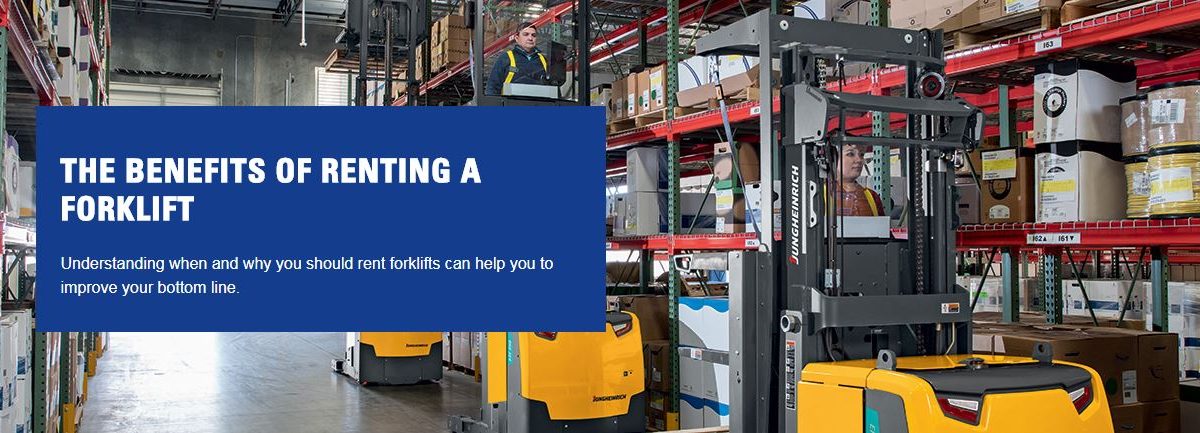Flexibility is critical for businesses and renting forklifts can be a surprisingly easy way to cut costs on a short-term basis. However, to maximize the benefits you can gain from a short-term forklift rental, you need to understand lift truck rental agreements and how they align to the needs of your specific business.
BUSINESS FACTORS TO CONSIDER
One of the first things to understand is the demand for more forklift capacity. Depending on your need, the cost to rent a forklift on a short-term basis can save you quite a bit if you’re able to secure a low weekly or monthly rate. Short-term rentals are great for:
- Replacing existing lift trucks that are out for repair or being serviced
- Meeting a temporary demand for a high capacity or extended reach
- To meet seasonal demand increases
- Retain productivity until a new forklift fits the budget
- Testing new models to see which best fits your needs
FORKLIFT RENTAL COSTS ARE TEMPORARY
A temporary expense for a forklift rental provides decision makers with much greater flexibility in managing the budget. Let’s be honest, not every business has the ability to spend the money on a new or used forklift purchase, particularly when there are so many other business questions to answer, such as:
- Do you need more flexibility in your budgeting?
- Are you going to need more capital to grow your business?
- Do you need to leave forklift maintenance to someone else (i.e. your local forklift dealer)?
- Do you want guaranteed uptime (with a full-maintenance option)?
HOW MUCH TO RENT A FORKLIFT?
If you’ve never rented before, you might be surprised at the actual forklift rental cost and how affordable it can be. However, statistics show that companies that own their fleets tend to keep their forklifts longer than financially makes sense. In many cases, to the point they’re spending more money to keep the fleet running than the fleet is worth. For a short-term upgrade, you can get an industry-leading forklift at less cost. Contact our rental department today at [email protected]
UNDERSTANDING FORKLIFT RENTAL AGREEMENTS
If you intend to go beyond a short-term rental, consider talking with your local MCFA lift truck dealer first to make sure you get the most out of your forklift rental. Talk to your dealer about the weights and size of loads, lift heights, surface and operating condition, and any other special needs your facility may have.
Once you have a good feel for your general lift truck needs, you can discuss specifics like:
- The need for optional forklift features, like additional lights, attachments or alarms.
- For electric lift trucks and batteries, you’ll want to review the battery charger requirements. Some electric forklift batteries require chargers that must be hard wired and may require a professional for installation. Discuss battery and charger details with your local MCFA forklift dealer to make sure you understand your options.
- Establish a timeline of how long your rental will last. As rental rates can be assessed differently, spelling out the time period can save you money by getting reduced long-term rates or reducing the term of your rental to the tightest possible time period.
- Understand charges for overtime if a forklift will be used over the typical 8-hour workday, 40-hour week and 160-hour work month.
- Ask about charges for damages and the review process when you receive and return the forklift.
- Review your insurance policy. While the dealer insures the equipment, you’ll want to make sure your company’s insurance covers the operator, other people at your facility and the facility in the event of an injury or property damage when the rented forklift is in use.

